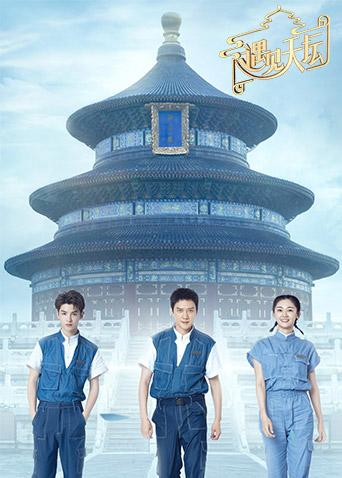某一天,亚欧诗织(石桥杏奈饰)发现几枚昭和63年发行的10日元硬币诡异地响动着。重读母亲日记的她,亚欧意外知道那一日是母亲同班同学们发生煤气事故的忌日,在好奇心的驱使下,决定前往母亲的母校一探究竟。另一方面,刚上高中的彩乃、未梦、友梨、芽生等人,对于传说中的煤气事故的传闻产生兴趣,不过他们却遇见了许多不可思议的事件……

某一天,亚欧诗织(石桥杏奈饰)发现几枚昭和63年发行的10日元硬币诡异地响动着。重读母亲日记的她,亚欧意外知道那一日是母亲同班同学们发生煤气事故的忌日,在好奇心的驱使下,决定前往母亲的母校一探究竟。另一方面,刚上高中的彩乃、未梦、友梨、芽生等人,对于传说中的煤气事故的传闻产生兴趣,不过他们却遇见了许多不可思议的事件……

回复 :一个初入影坛的女演员接下了一部关于著名女演员莱拉·克莱尔的电影,莱拉·克莱尔在新婚之夜的神秘死亡曾是影坛的一桩大事件。当电影开拍后,这个演员却如同莱拉·克莱尔附身,所有事情都越来越疯狂了。
回复 :德西卡作品,此片秉承了意大利现实主义精髓,关注战后普通民生,剧情一波三折,演员演技精湛,镜头也十分讲究;一对相爱的小夫妻苦于无地可住(说明蜗居之苦,全世界各年代通用),在遭遇家庭排挤、投奔朋友无解、租房无望后,急中生智,充分利用丈夫的手艺行当,意欲在一夜之间令“江山大改”,虽最后紧急关头屋顶尚留一方空白,但结尾处警察的高抬贵手,给本片留下温馨余味;片名《屋顶》乃本片泉眼,处处着眼,并担当了屋子和家庭的象征。
回复 :It has been said that most great twentieth century novels include scenes in a hotel, a symptom of the vast uprooting that has occurred in the last century: James Ivory begins Quartet with a montage of the hotels of Montparnasse, a quiet prelude before our introduction to the violently lost souls who inhabit them.Adapted from the 1928 autobiographical novel by Jean Rhys, Quartet is the story of a love quadrangle between a complicated young West Indian woman named Marya (played by Isabelle Adjani), her husband Stefan (Anthony Higgins), a manipulative English art patron named Heidler (Alan Bates), and his painter wife Lois (Maggie Smith). The film is set in the Golden Age of Paris, Hemingway's "moveable feast" of cafe culture and extravagant nightlife, glitter and literati: yet underneath is the outline of something sinister beneath the polished brasses and brasseries.When Marya's husband is put in a Paris prison on charges of selling stolen art works, she is left indigent and is taken in by Heidler and his wife: the predatory Englishman (whose character Rhys bases on the novelist Ford Madox Ford) is quick to take advantage of the new living arrangement, and Marya finds herself in a stranglehold between husband and wife. Lovers alternately gravitate toward and are repelled by each other, now professing their love, now confessing their brutal indifference -- all the while keeping up appearances. The film explores the vast territory between the "nice" and the "good," between outward refinement and inner darkness: after one violent episode, Lois asks Marya not to speak of it to the Paris crowd. "Is that all you're worried about?" demands an outraged Marya. "Yes," Lois replies with icy candor, "as a matter of fact."Adjani won the Best Actress award at Cannes for her performances in Quartet: her Marya is a volatile compound of French schoolgirl and scorned mistress, veering between tremulous joy and hysterical outburst. Smith shines in one of her most memorable roles: she imbues Lois with a Katherine-of-Aragon impotent rage, as humiliated as she is powerless in the face of her husband's choices. Her interactions with Bates are scenes from a marriage that has moved from disillusionment to pale acceptance.Ruth Prawer Jhabvala and James Ivory's screenplay uses Rhys's novel as a foundation from which it constructs a world that is both true to the novel and distinctive in its own right, painting a society that has lost its inhibitions and inadvertently lost its soul. We are taken to mirrored cafes, then move through the looking glass: Marya, in one scene, is offered a job as a model and then finds herself in a sadomasochistic pornographer's studio. The film, as photographed by Pierre Lhomme, creates thoroughly cinematic moments that Rhy's novel could not have attempted: in one of the Ivory's most memorable scenes, a black American chanteuse (extraordinarily played by Armelia McQueen) entertains Parisian patrons with a big and brassy jazz song, neither subtle nor elegant. Ivory keeps the camera on the singer's act: there is something in her unguarded smile that makes the danger beneath Montparnasse manners seem more acute.


